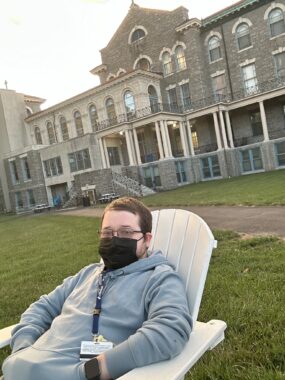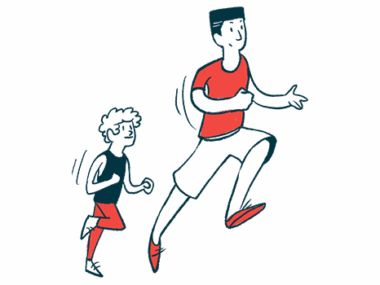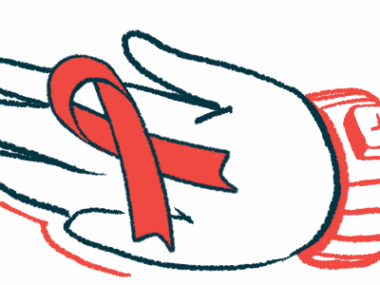When faced with a trying situation, my son tries harder
How life with PAH and transplant have shaped Cullen's future
Written by |

My 25-year-old son Cullen has been trying to deal with trying situations since he was a child.
For years he explained to both his parents and medical professionals that something more than asthma or anxiety was making it difficult for him to physically keep up with his friends. A correct diagnosis of long QT syndrome, a rare heart condition that affects the electrical system that controls the heartbeat, confirmed that he should not be participating in certain activities such as sports.
But trying times weren’t anywhere close to over for Cullen. Even though he was taking beta blockers, which make the heart beat slowly and less forcefully, and not overexerting himself, he wasn’t feeling any better.
Trying to survive as a PAH patient
Thanks to self-advocating and having parents and doctors who listened and were proactive, Cullen’s concerns were eventually validated. At 8 years old, he was diagnosed with pulmonary arterial hypertension (PAH), and with it, life became more trying.
He was placed on triple therapy, including continuous intravenous Flolan (epoprostenol GM). PAH symptoms, medication side effects, and lugging around a Flolan pump connected to a central venous catheter (a thin, flexible tube that’s inserted into a large vein to provide access to the heart) challenged Cullen throughout his childhood.
Surviving wasn’t his only goal; maintaining a good quality of life was equally important. Cullen attended class as often as he could and earned good grades, whether from home or school. He had fun with friends by partaking in activities that wouldn’t overexert him. He graduated from eighth grade on time and looked forward to his future. Life was altered but still livable.
As hard as he tried, Cullen couldn’t win his fight against PAH without having a heart and double-lung transplant, which finally happened in 2014. The surgery was a great success, and with a lot of trial and error, his life since then has been a success, too.
He tried to attend high school, but his lungs developed bronchiolitis obliterans (scarring and inflammation), which can lead to chronic organ rejection. His battle with this and extracorporeal photopheresis treatments kept him home and taking classes online.
Cullen graduated from high school thanks to determination and a never-stop-trying attitude. His future looked bright.

Cullen Steele enjoys life on campus. (Photo by Colleen Steele)
Giving it the old college try
Due to ongoing health struggles post-transplant, Cullen decided to attend community college close to home in Washington state.
When the COVID-19 pandemic hit, he was likely more prepared to deal with it than others were. He transferred to online classes at Southern New Hampshire University so that he could continue his education. He excelled, and when he felt it was safe for him to physically return to class, he applied and was accepted to the University of Washington (UW).
But the most trying times were yet to come. Cullen’s dad, Brian Steele, passed away in April 2023. Cullen made the difficult decision to decline his acceptance to UW and move to New Jersey with me where I would be caring for my aging parents.
“If I were a ‘normal‘ person, I would have been more crushed about giving up the UW, but I’m used to trauma and making adjustments,” Cullen admitted. He applied and was accepted to Immaculata University in Pennsylvania, with a scholarship.
He decided to give residence life a try and was accommodated with a private dorm room and bath to limit exposure to airborne illnesses. Professors provide more one-on-one education and are understanding when Cullen misses classes due to medical appointments or health challenges. Attending a smaller university has its benefits.
A trying life leads to a career in social work
Cullen’s focus is on medical social work, preferably for transplant patients, with a minor in psychology and a double major in social work and sociology. He is a unique student because he’s faced difficult life experiences and learned many lessons from each trying situation.
He is used to working hard and making sacrifices. Medical terminology has been in his vocabulary since he was a child. He’s lived through trauma and the reality that not all patients survive. As dark as that lesson has been, it will have a compassionate effect on how he handles his responsibilities as a social worker. Cullen places importance on treating the whole person — mind and body — but also on supporting family members who might be struggling as their loved one navigates a life-threatening disease or life post-transplant.
“My approach won’t be doom and gloom, but I am prepared to be there for patients and their loved ones if something goes wrong,” Cullen said.
Are you or a loved one living with PH, dealing with complications post-transplant, or facing the decision to have one? Don’t stop trying because of a trying life. Use these experiences as lessons to help you move forward and accomplish your goals.
Note: Pulmonary Hypertension News is strictly a news and information website about the disease. It does not provide medical advice, diagnosis, or treatment. This content is not intended to be a substitute for professional medical advice, diagnosis, or treatment. Always seek the advice of your physician or other qualified health provider with any questions you may have regarding a medical condition. Never disregard professional medical advice or delay in seeking it because of something you have read on this website. The opinions expressed in this column are not those of Pulmonary Hypertension News or its parent company, Bionews, and are intended to spark discussion about issues pertaining to pulmonary hypertension.





Cris Dingman
What a remarkable young man. Nothing but good wishes for his future. He is exactly the type of medical professional most people would LOVE to have!
Colleen Steele
Cris, Cullen appreciates the compliment and encouragement! Thank you so much for taking the time to read and comment.
Lee Boerger
This is a marvelous article, so thorough and loving and powerful for anyone facing an unknown medical situation! Thank you for sharing and I wish Cullen an inquisitive and full road ahead!
Colleen Steele
Dear Lee, I hope you are doing well. Thank you for reading and commenting. I appreciate your kind words and well wishes for Cullen!